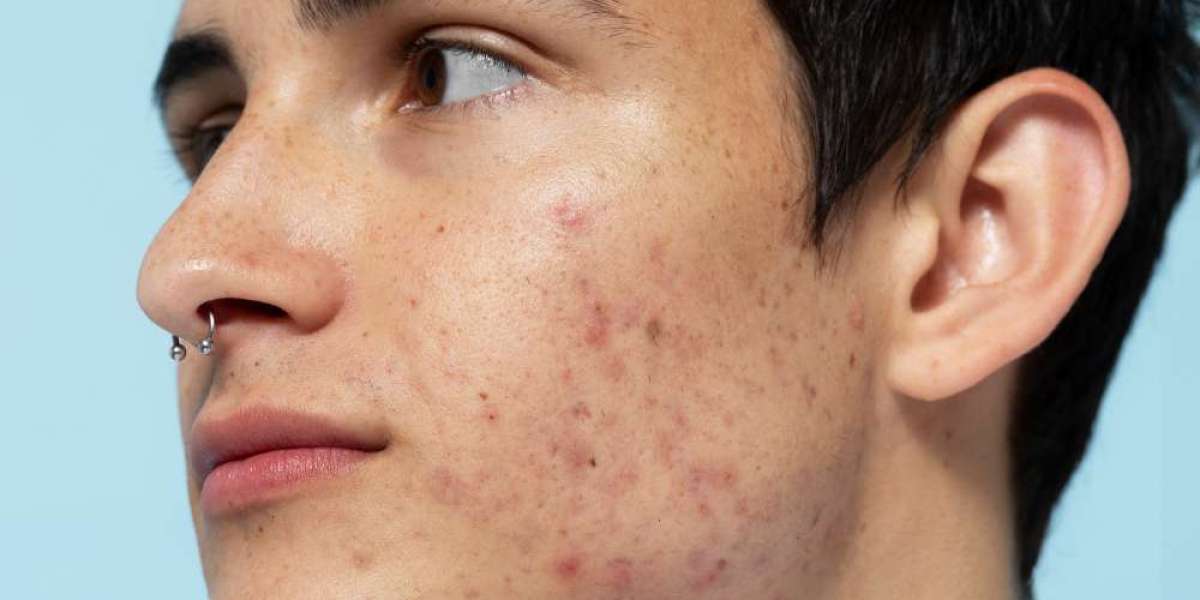Acne is one of the most common skin conditions affecting people of all ages, especially teenagers and young adults. Whether it's caused by hormonal imbalance, diet, stress, or skincare products, the quest for clear skin leads many to a critical question: homeopathy or allopathy which one is better for acne?
Let’s explore both systems of medicine, compare their approach to acne treatment, and help you make an informed choice.
Understanding Acne: More Than Just a Skin Problem
Acne occurs when hair follicles get clogged with oil and dead skin cells. It may show up as blackheads, whiteheads, pustules, or deep cystic lesions. While mostly harmless, acne can severely affect a person’s self-esteem and may lead to permanent scarring if not treated effectively.
Choosing between homeopathy medicine for acne and pimples and conventional allopathic treatments can seem overwhelming. But understanding how each approach works can make a big difference.
What Is Allopathy and How Does It Treat Acne?
Allopathy, or conventional medicine, typically focuses on eliminating the symptoms of acne using pharmaceutical treatments. These include topical creams, antibiotics, or hormonal therapies depending on the severity.
Pros of Allopathic Treatment:
- Quick results: You may see noticeable improvement within a few weeks.
- Targeted approach: Suitable for moderate to severe cases, especially cystic acne.
- Scientific backing: Treatments are supported by clinical trials and research.
Cons of Allopathic Treatment:
- Side effects: Some treatments may cause dryness, irritation, or long-term skin sensitivity.
- Temporary relief: It often addresses the symptoms rather than the root cause.
- Resistance issues: Long-term use of antibiotics may lead to resistance.
When choosing this path, it's essential to consult a qualified dermatologist who can assess your skin type and acne severity.
What Is Homeopathy and Its Approach to Acne?
Homeopathy is a holistic system of medicine that believes in stimulating the body’s natural healing ability. Rather than focusing just on the acne itself, homeopathic practitioners assess a person’s emotional, mental, and physical health before prescribing treatment.
How Homeopathy Treats Acne:
- Individualized treatment: Each person may receive a different remedy based on their overall constitution.
- Focus on root cause: Homeopathy looks into underlying issues like hormonal imbalance, digestive health, and emotional stress.
- Mild and natural: Homeopathic medicines are generally non-toxic and safe for long-term use.
Pros of Homeopathic Treatment:
- Holistic healing: Aims to heal from the inside out.
- Minimal side effects: Gentle on the skin and body.
- Long-term results: May reduce the recurrence of acne over time.
Cons of Homeopathic Treatment:
- Slower process: Results may take weeks or even months to appear.
- Requires consistency: Patience and regular follow-up are crucial.
- Less evidence-based: Homeopathy lacks large-scale scientific trials compared to allopathy.
If you are considering homeopathy medicine for acne and pimples, it’s important to consult a certified practitioner who can evaluate your unique symptoms and medical history.
Homeopathy or Allopathy: Which One Is Better for Acne?
This is the big question: homeopathy or allopathy which one is better for acne? The answer depends on several factors:
1. Severity of Acne
- Mild to moderate acne: Homeopathy may be effective if you’re looking for a gentle, long-term solution without side effects.
- Severe acne or scarring: Allopathy might be more appropriate initially to control inflammation and prevent further damage.
2. Desired Speed of Results
- If you're looking for fast relief, allopathic treatments usually deliver quicker results.
- If you’re willing to invest time in holistic healing, homeopathy can be a powerful long-term solution.
3. Personal Philosophy
- Some prefer a natural, non-invasive route that aligns with their health beliefs—making homeopathy a better choice.
- Others may prioritize evidence-based, quick solutions, leaning toward allopathy.
4. Underlying Health Issues
- Homeopathy can be beneficial if your acne is linked to hormonal imbalances, stress, or digestive problems, as it addresses the root cause.
- Allopathy might not always consider these underlying issues, instead offering symptomatic relief.
Can You Combine Both Treatments?
Yes, in some cases, a combined approach might be beneficial. For example, one might use homeopathy to balance internal health while using gentle topical allopathic products to manage active breakouts.
However, combining both systems should only be done under the guidance of professionals from both fields to avoid interactions or conflicting approaches.
What Do Experts Say?
Many dermatologists acknowledge that homeopathy medicine for acne and pimples may help in chronic or recurring cases when conventional treatments fall short. On the other hand, homeopathic doctors often emphasize the importance of internal healing and the body’s ability to self-correct without aggressive medication.
Final Thoughts: Making the Right Choice
So, homeopathy or allopathy—which one is better for acne? There’s no one-size-fits-all answer.
If you're looking for immediate relief and strong symptom control, allopathy may be your go-to. But if you seek a natural, holistic, and side-effect-free solution, homeopathy could be the better path.
The most effective approach often depends on your skin type, overall health, treatment goals, and personal preferences. Before deciding, consult with qualified practitioners from both systems to explore what works best for you.
Key Takeaway:
Both homeopathy and allopathy offer unique strengths. Your decision should be guided by your condition’s severity, your comfort level with each system, and a clear understanding of what you want to achieve from the treatment.
Source: https://diigo.com/01044p2














